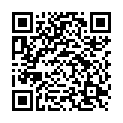|
|
|
| Module code: FT15 |
|
|
2V (2 hours per week) |
|
2 |
| Semester: 3 |
| Mandatory course: yes |
Language of instruction:
German |
Assessment:
Written exam 60 min.
[updated 30.09.2020]
|
FT15 (P242-0066) Automotive Engineering, Bachelor, ASPO 01.10.2011
, semester 3, mandatory course
FT15 (P242-0066) Automotive Engineering, Bachelor, ASPO 01.10.2015
, semester 3, mandatory course
FT15 (P242-0066) Automotive Engineering, Bachelor, ASPO 01.04.2016
, semester 3, mandatory course
FT15 (P242-0066) Automotive Engineering, Bachelor, ASPO 01.10.2019
, semester 3, mandatory course
MAB.3.4.MAT3 (P242-0066) Mechanical and Process Engineering, Bachelor, ASPO 01.10.2013
, semester 3, mandatory course
|
30 class hours (= 22.5 clock hours) over a 15-week period.
The total student study time is 60 hours (equivalent to 2 ECTS credits).
There are therefore 37.5 hours available for class preparation and follow-up work and exam preparation.
|
Recommended prerequisites (modules):
FT01 Engineering Mathematics I
FT05 Engineering Mathematics II
[updated 14.07.2015]
|
Recommended as prerequisite for:
FT26.1 Project Work 1
FT30 Engineering Project in English
FT32 Bachelor Thesis
[updated 24.01.2016]
|
Module coordinator:
Prof. Dr. Marco Günther |
Lecturer: Prof. Dr. Marco Günther
[updated 20.05.2011]
|
Learning outcomes:
After successfully completing this module, students will:
- have mastered the basics of differential geometry and vector analysis
- be able to handle scalar and vector fields and apply different operators to them
- be able to calculate integrals over curves, surfaces and volumes
- understand and be able to apply the basic concepts of statistics
[updated 30.09.2020]
|
Module content:
- Differential geometry
- Vector analysis
- Scalar and vector fields in different coordinate systems,
- Divergence, rotation, potential,
- Line, surface, volume integrals
- Introduction to statistics
[updated 30.09.2020]
|
Teaching methods/Media:
Lecture, exercises
[updated 30.09.2020]
|
Recommended or required reading:
- Papula, Mathematik für Ingenieure und Naturwissenschaftler, Band 2+3.
- Bartsch, Taschenbuch mathematischer Formeln.
Additional literature will be announced in the lecture.
[updated 30.09.2020]
|


